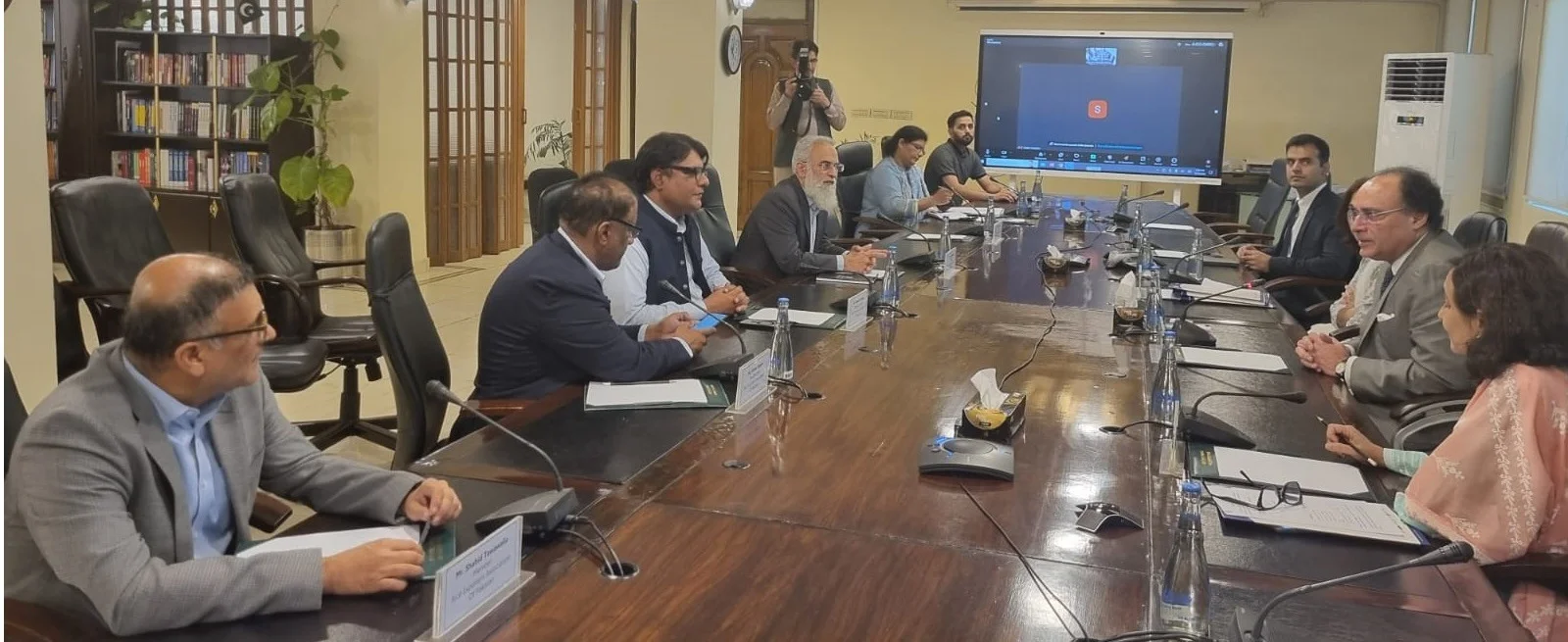
The Rice Exporters Association of Pakistan (REAP) has expressed serious concerns over the recent shift from the Final Tax Regime (FTR) to a Hybrid Tax Regime.
During a meeting with Federal Minister for Finance & Revenue, Senator Muhammad Aurangzeb, REAP’s Acting Chairman, Haseeb Ali Khan, highlighted the potential negative impacts on rice, maize, and sesame exports.
The meeting, held at the Finance Division, included notable attendees such as Member-Custom Policy FBR, Member-IR Policy, Ch. Samee Ullah Naeem, Ex-Chairman REAP Faisal Garib, Shahid Tawawalla, Adnan Shaikh, and Rana Faisal Shabbir.
Haseeb Ali Khan reported a significant export growth, with 5.9 million tons of rice worth USD 3.88 billion exported in the current fiscal year, marking a 78 percent increase in value and 65% in volume compared to the previous year. Additionally, exports of sesame and maize collectively surpassed USD 800 million, with maize exports growing by 200 percent and sesame by 150 percent.
Khan emphasized that these sectors have thrived without government subsidies, attributing the success to private sector efforts and backward farm integration.
The recent change from a 1% Final Tax Regime to a 1% Minimum Tax plus 1% Advance Tax was criticized. Khan warned that this new regime, which could result in a tax burden reaching 60 percent, would discourage exporters. He pointed out that operating margins for commodities like rice, maize, and sesame are razor-thin, ranging from 2 percent to 3 percent.
The new tax structure, combined with potential FBR audits, could lead to corruption, harassment, and kickbacks, further complicating the situation for exporters. The new tax regime and additional financial burdens are expected to make exports unsustainable, potentially reducing rice exports to USD 2.5 billion in the next fiscal year.
Khan called for fast-tracking sales tax refund claims and urgently processing pending claims to relieve the financial burden on the struggling rice industry, which is already grappling with high markups and electricity costs. He stressed that the high tax rates would render Pakistani exporters uncompetitive in the international market, which is dominated by countries offering subsidies and other competitive advantages.
The meeting concluded with a clear message from REAP: without swift policy adjustments and support from the government, Pakistan’s thriving export sectors could face significant setbacks, adversely affecting both exporters and farmers.
In Abu Dhabi, United Arab Emirates President Sheikh Mohammed bin Zayed Al Nahyan met with…
In the picturesque landscapes of Punjab, the holy month of Ramadan is being ushered in…
Andrew Mountbatten Windsor's return to public attention has placed King Charles III at an unprecedented…
Following Pakistan's successful advancement to the Super Eight phase of the ICC Men’s T20 World…
In Islamabad today, Pakistan Telecommunication Authority (PTA) Chairman Hafeezur Rehman announced the upcoming 5G spectrum…
Pakistan's Defense Minister Khawaja Asif underscored the country’s steadfast support for Palestine and its commitment…
This website uses cookies.